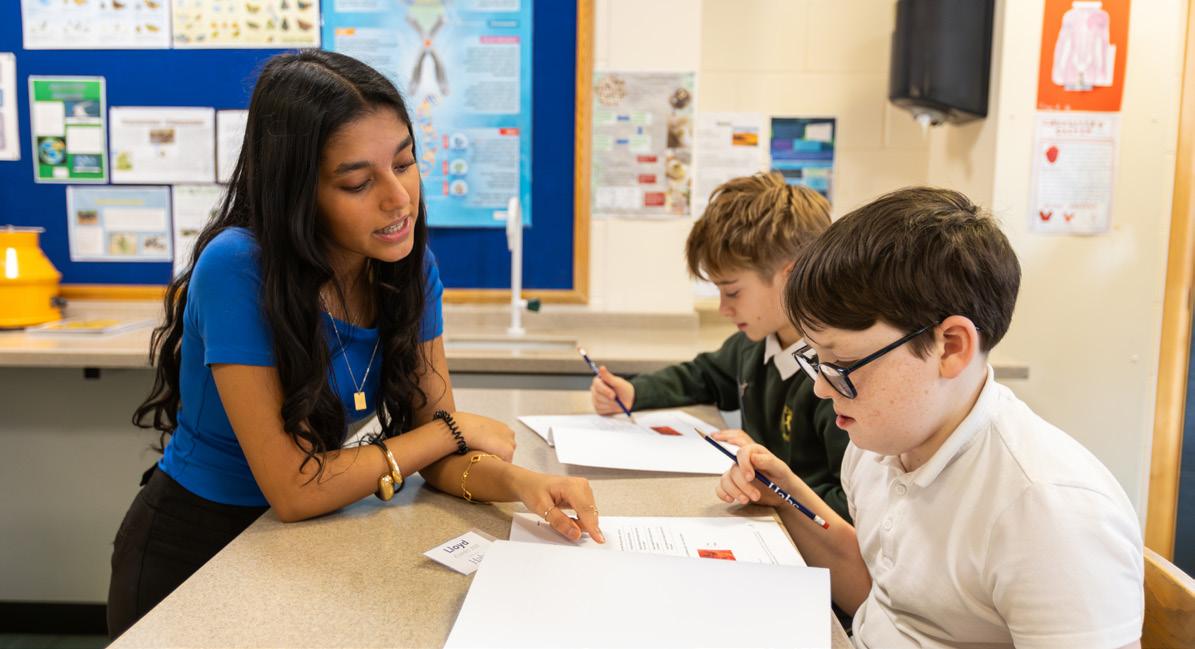

Habs Diploma Handbook
2025/26
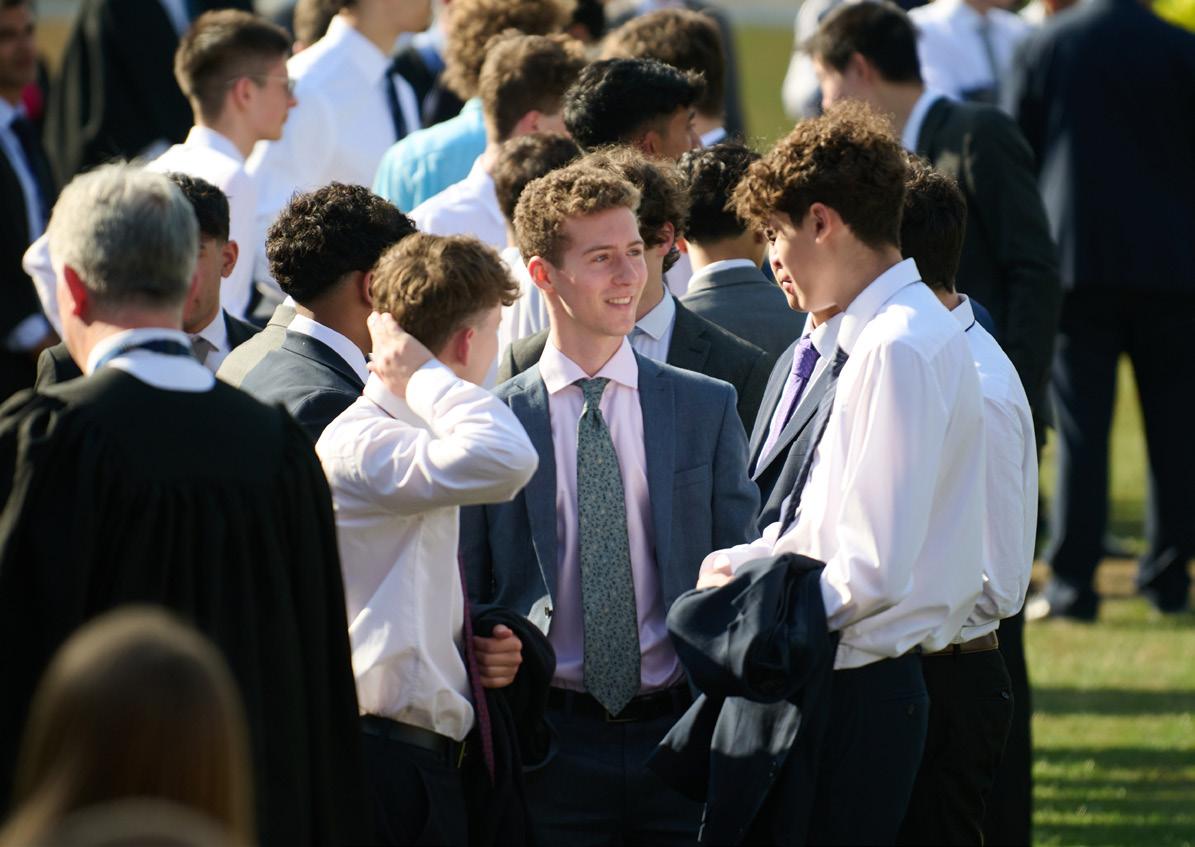
Class of 2025 Graduation Ceremonies
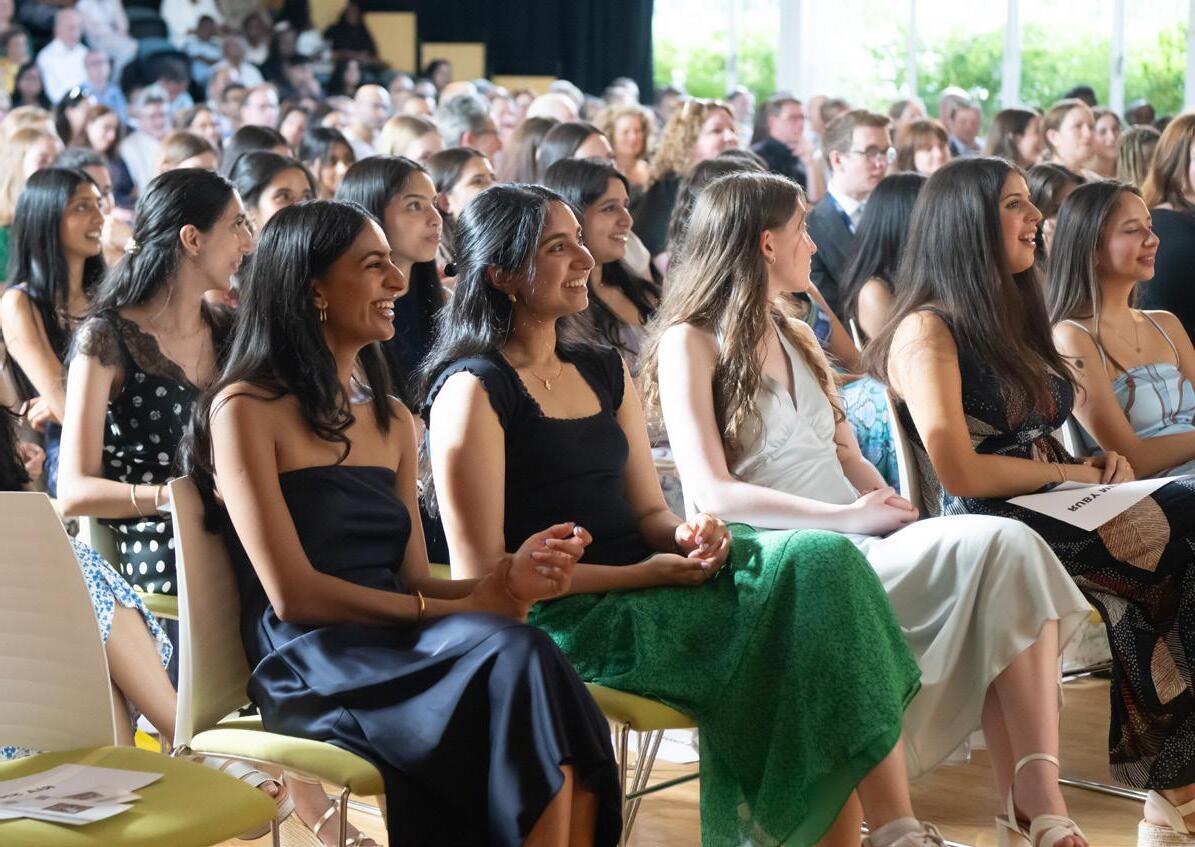
Welcome to the Habs Diploma
Dear parents and students,
Joining Habs in the Sixth Form is hugely exciting. Alongside the three or four A Levels you choose to study at Habs, you will also complete the Habs Diploma.
The Habs Diploma is key to our Sixth Form provision and from September 2025 we have made some exciting changes. We have reshaped the programme to reflect our students’ other commitments, and to create more of a ‘pre-university’ experience.
The purpose of the diploma is to create a sense of wonder in learning, going beyond the constraints of subject boundaries and providing opportunities to develop skills that are differentiators in further study, the workplace and adult life more generally.
Please do take the time to read this booklet, which explains the Diploma in more detail. If you have any questions, please do not hesitate in contacting me.
We look forward to welcoming you in September.
DR KATE BRIDGE HEAD OF HABS DIPLOMA, HABS ELSTREE
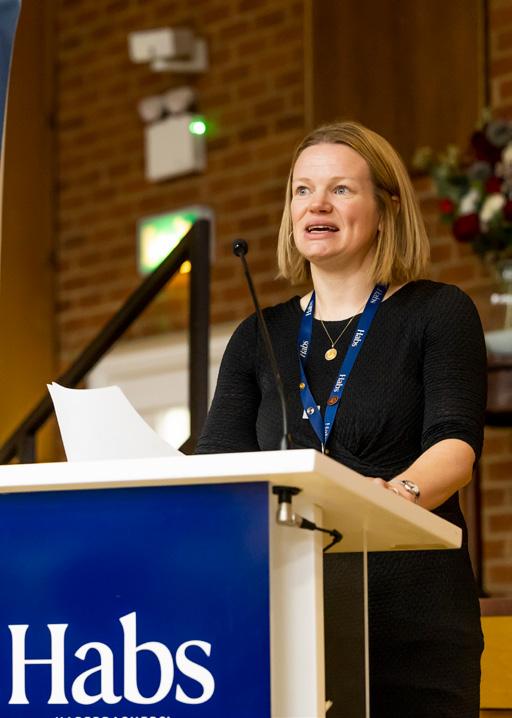
Why?
We are an academically ambitious school and whilst achieving excellent A level grades remains a priority for our students’ ongoing educational choices, exam results are just one part of life in the Sixth Form.
We also know we must better prepare our students for life at university and to flourish in today’s global and technological data-driven workplace.
Whilst we are preparing our students for futures that are not yet imagined, The World Economic Forum Future Jobs Report 2025 highlights key skills that will be crucial now, and in the future. Skills such as creative and analytical thinking, curiosity, leadership, resilience and the ability to work with others.
The Habs Diploma has been developed to help deliver the key workplace skills.
KEY:
Core skills in 2030
Share of employers considering skills
essential now but expected
skills to be a core skill in 2025 and share of employers expecting skills to increase in importance by 2030.
SKILLS expected to increase in use
Networks and cybersecurity
Design and user experience
CORE SKILLS IN 2030
Core now and expected to increase in use
AI and big data
Technological literacy
Curiosity and lifelong learning
Systems thinking
Empathy and active listening
Creative thinking
Talent management
Leadership and social influence
Resilience flexibility and agility
Analytical thinking
Monitoring and self-awareness
Share of employers considering as a core skill in 2025 (%)
All students take the Habs Diploma. From September 2025, we have made some exciting changes to the Diploma.
We have reshaped the programme to reflect students’ other commitments, and to create more of a ‘pre-university’ experience. Students will undertake five compulsory components:
3 0r 4 A Levels
Diploma
Visiting Speaker Programme Electives
Extended Research Project or Extended Project Qualification
Skills gained:
Technological literacy
Creative thinking
Leadership
Analytical thinking
Creativity
Social and cultural awareness
Critical thinking
Independence
HABS DIPLOMA:
The benefits?
The Habs Diploma aims to develop the key workplace skills aims, encouraging students to leave their comfort zones and experience aspects of university and broader life beyond school. Specific benefits include:
To learn with like-minded, curious and ambitious individuals
To enhance A Level subjects
To be ambitious with research and courses chosen
To inspire a deeper curiosity and understanding about a subject or area
To have the opportunity to study a variety of new elective subjects (unrelated to A Levels), for a wider global perspective
To have exposure to challenging concepts and ideas, building your confidence in discussion and help support the development of your independent research projects
To strengthen communication skills
To enhance research techniques
To participate in and lead seminar-like sessions
To offer opportunities for learning outside of the classroom with keynote speakers from every discipline
To provide skills and knowledge to help succeed at university and beyond
To develop an understanding of different cultural perspectives and enhance empathy.
To apply creativity and exploring problem-solving skills in real world situations.
To instil a sense of community by learning from the experience of others
To learn through personal experiences and become better prepared for the world
How does it work in detail?
Students taking more A Levels will be required to take fewer electives. There is a choice between either taking the Extended Research Project (ERP) OR the Extended Project Qualification (EPQ).
For the independent projects, once core teaching is complete, all students will have greater flexibility in how they engage with their project supervision.
This chart explains the choices available and the required electives:
A1 = Autumn Term Year 12
SP1 = Spring Term Year 12
S1 = Summer Term Year 12
A2 = Autumn Term Year 13
VSP = Visiting Speaker Programme
ERP = Extended Research Project
EPQ = Extended Project Qualification
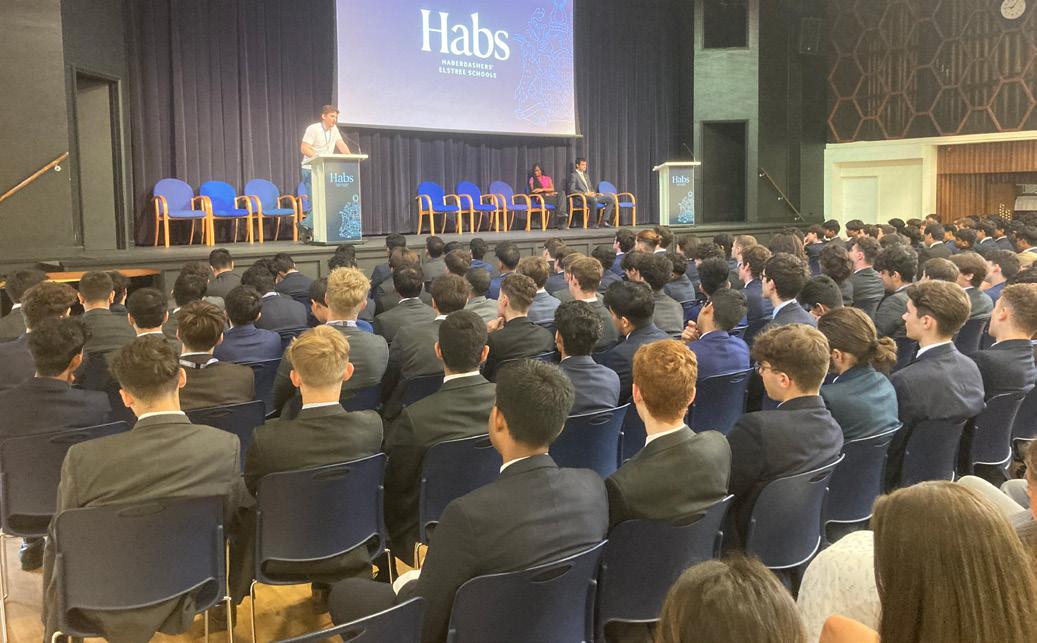
Visiting Speaker Programme
Our fortnightly Visiting Speaker Programme is our way of making the most of our amazing community. At Habs, we have the opportunity to draw upon years of understanding and experience in a number of different industries both within our Old Haberdasher network and outside it.
With those connections, we are able to stretch you as students and offer the chance of intellectual discussion on topics that are beyond the current curriculum. It will inspire you to curiously seek answers to subjects and questions you may not have previously considered.
In this section of the diploma, we also seek to enhance that sense of global community and responsibility within our students, further exposing you to social and cultural awareness.
This will be student led with academic society leaders working with staff on your Visiting Speaker Programme to welcome guests which you and your peers believe will provide enrichment across a wide range of topics. This means taking on responsibility and ownership of any aspect of your curriculum and your own learning.
Example of previous visiting speakers can be found here
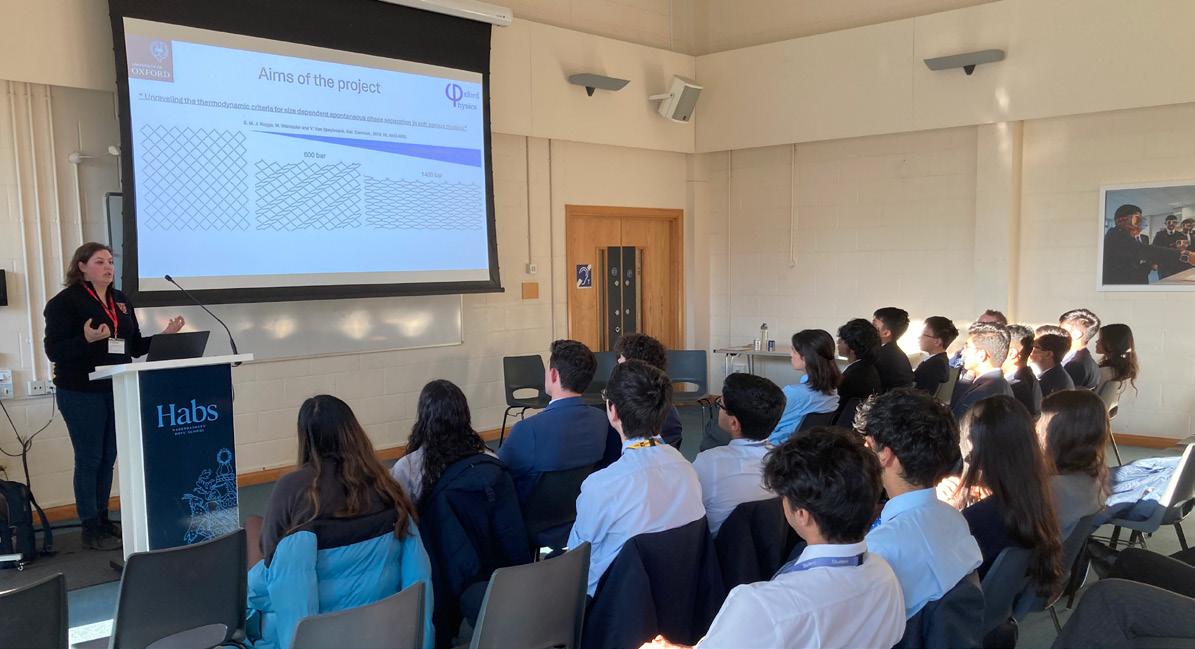
Extended Research Programme (ERP)
The Extended Research Project component of the diploma is a fantastic opportunity for you to push yourself ambitiously as you complete a 3,000 to 4,000 word essay or creative product.
This project will develop your independent study and academic skills while also deepening your subject knowledge. You can truly satisfy your curiosity in a certain element of a subject as you begin to find your niche and explore what excites you.
We want to harness the passion our students have and allow you to show courage when exploring a topic that throws you into the deep end, but one that you know you can thrive in. Ambition in the depth of exploration and courage in facing the challenges along the way.
This section of the diploma will also improve oracy, presentation skills, independent learning, project management, referencing and research.
You will explore all these elements within a supportive community of peers and project mentors.
From 2025 we have made the decision to move away from the accreditation of the ERP. We are confident that, having been through that process of accreditation with the University of Buckingham, that our programme meets robust standards. However, we no longer feel that being accredited in this way delivers benefits for the students.
Examples of last year’s ERP winner can be found here.
If you take the ERP, this will be instead of the EPQ.
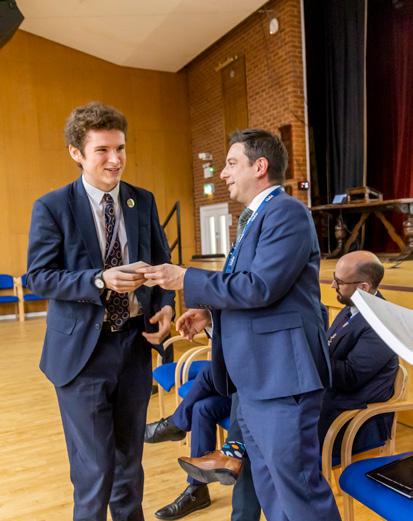
Extended Project Qualification (EPQ)
Following unanimous feedback from our parent and student body we believe there is value in introducing the option to take an Extended Project Qualification (EPQ).
We will be offering three pathways in which students can undertake the project:
TRADITIONAL DISSERTATION (5-6000 WORDS)
ARTEFACT OR COLLABORATIVE PROJECT
These cater to diverse student interests and skills. Each pathway will be supported by tailored skill sessions, such as executive training for collaborative projects, making the experience akin to a mini MBA.
The EPQ is an accredited route to achieve an additional half A Level. It carries UCAS points, and is well understood by universities.
If
you take the ERP, this will be instead of the EPQ.
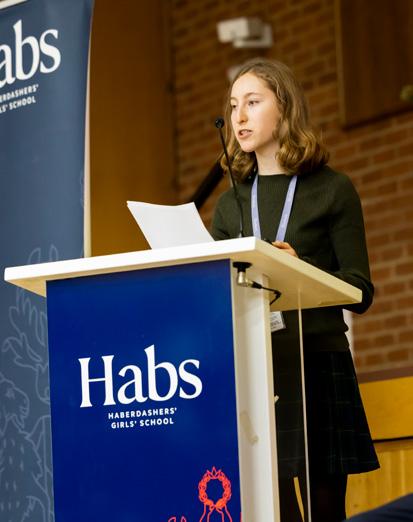
ERP or EPQ?
When you join the Sixth Form students will need to choose between the ERP or the EPQ to suit their level of other commitments and interests. The differences between the programmes are highlighted to the right:
In order to help students keep track of their progress, we will be introducing an online portfolio platform, Project Q, which is purpose-built for project-based learning.
Total Qualification (Hours)
Guided Learning Hours
Word limit (Subject to project type)
Milestones
Example of difference
Similarities
Internally assessed and moderated, with some external moderation at top end
80 hours (Year 12 only)
20 hours
3000 Words
Four Main Milestones
- Project proposal
- Primary research
- First draft
- Final submission
(Alongside are meetings with supervisor and potential to present in marketplace at Yr 10 taster day)
- Learning to meet deadlines
- Proposals can be fixed with supervisor assistance
- Check-ins are every three weeks
- Year 12 only
- Supervisor is not sole marker
- Grouped in faculties in terms of project type
- Completion by end of Year 12
EPQ
Internally assessed, externally moderated by the Board. Externally accredited in its own right
120 hours (runs over four terms - Year 12 and Autumn Term of Year 13)
40 hours
5-6000 Words
Four Main Milestones
- Project proposal
- Primary research
- First draft
- End of summer submission
- Final submission
- Presentation: market stall vs group session
- Project reflection
- Deadlines are two strikes
- Proposals must be proven to have enough substance. Supervisor is able to offer generic suggestions on skills but project is student led
- Check-ins are fortnightly or more frequent
- Supervisor must be marker and then moderated
- Completion in Year 13 Autumn Term
- Development of research skills beyond KS5
- Both routes can undertake a variety of projects
- Supervisors are likely to be faculty based
- All communication via teams
Electives
Our elective courses of six to eight weeks run throughout the Sixth Form study. Students taking more A Levels and the EPQ will be required to take fewer electives (see the Diploma chart).
The courses will broaden your horizons as you prepare to become global citizens after leaving Habs.
We believe this is actively encouraged through inspiring curiosity with new subject matter, evoking courage with taking on new challenges and drawing out the ambition within our students to push yourselves out of your comfort zones to sharpen skills that will enrich your academic and professional future.
Examples of our elective courses:
A Social History of Modern Britain
AI and Machine Learning
Algorithms
Behind the Gospels:
An Introduction to the Historical Jesus
Biology - Molecular Biology Techniques
Ceramics in Context
China and the Modern World
Creative Artificial Intelligence
Data Science
Electronics and Microchip Programming
Extended Investigative Skills
French Language Partnerships
Innovations in Food
Italian Language and Culture
Japanese
Life Skills
Magic, Myth, and Medicine in Ancient Greece
Mandarin Chinese
Maths Partnerships
Photography and Lens
Based Media
Principles in Politics – What Role Should They Play?
Psychology
Reading Partnerships
Spanish Culture Through Film
Spanish Language Partnerships
Stitch In Art
Swimming Partnerships
The History of Science Fiction
Weavers, Witches & Monsters: Women in Myth
Yoga
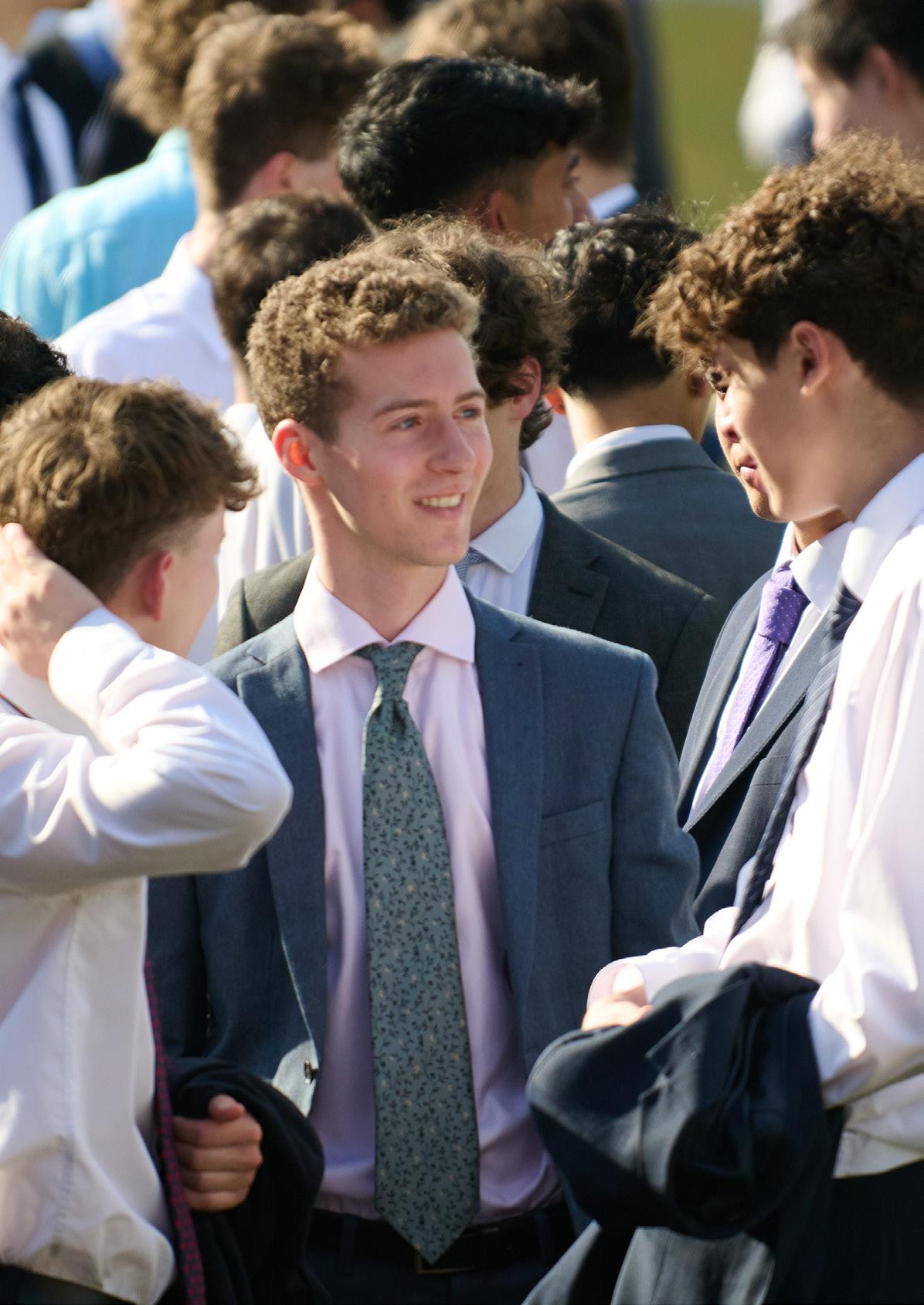
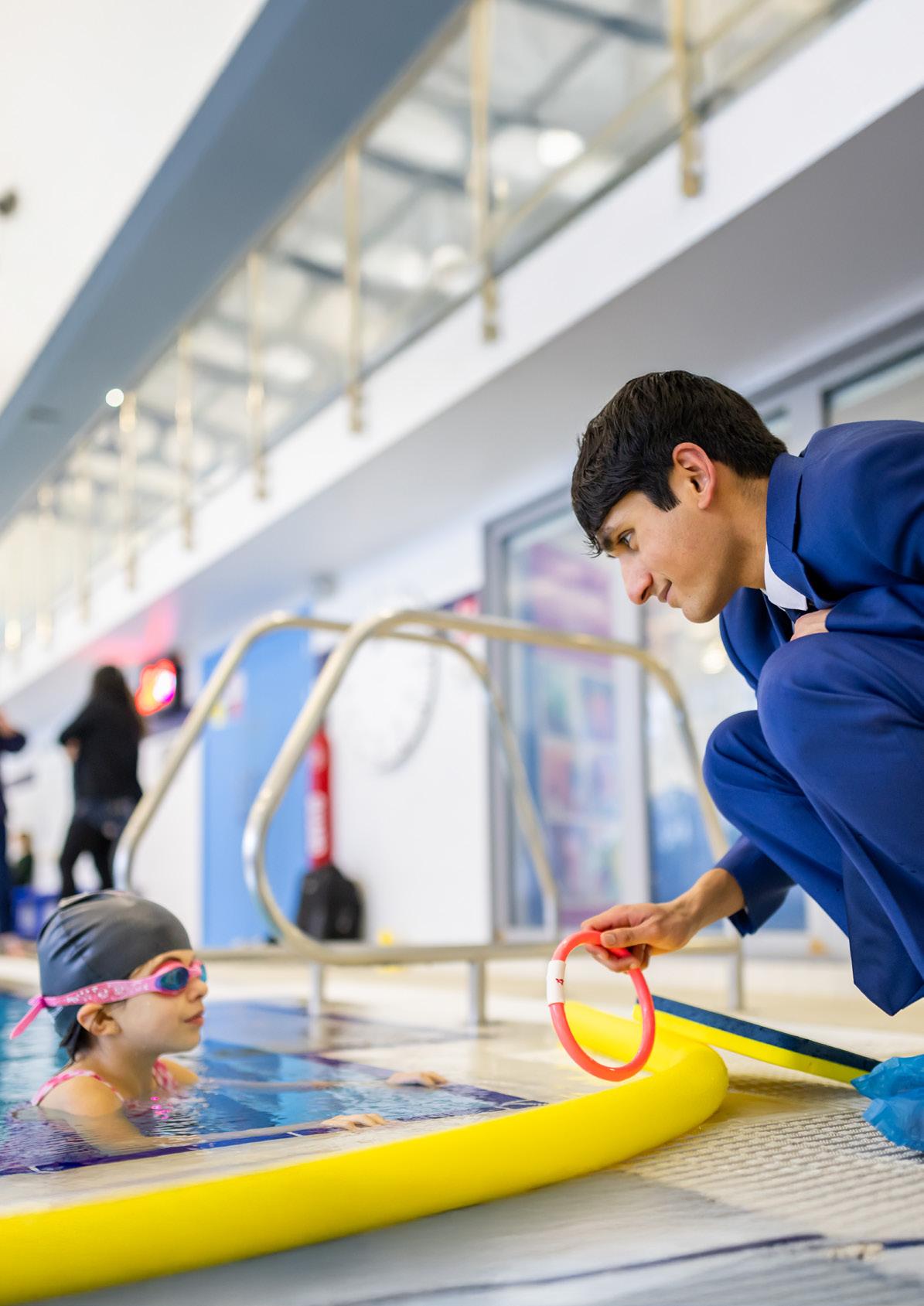
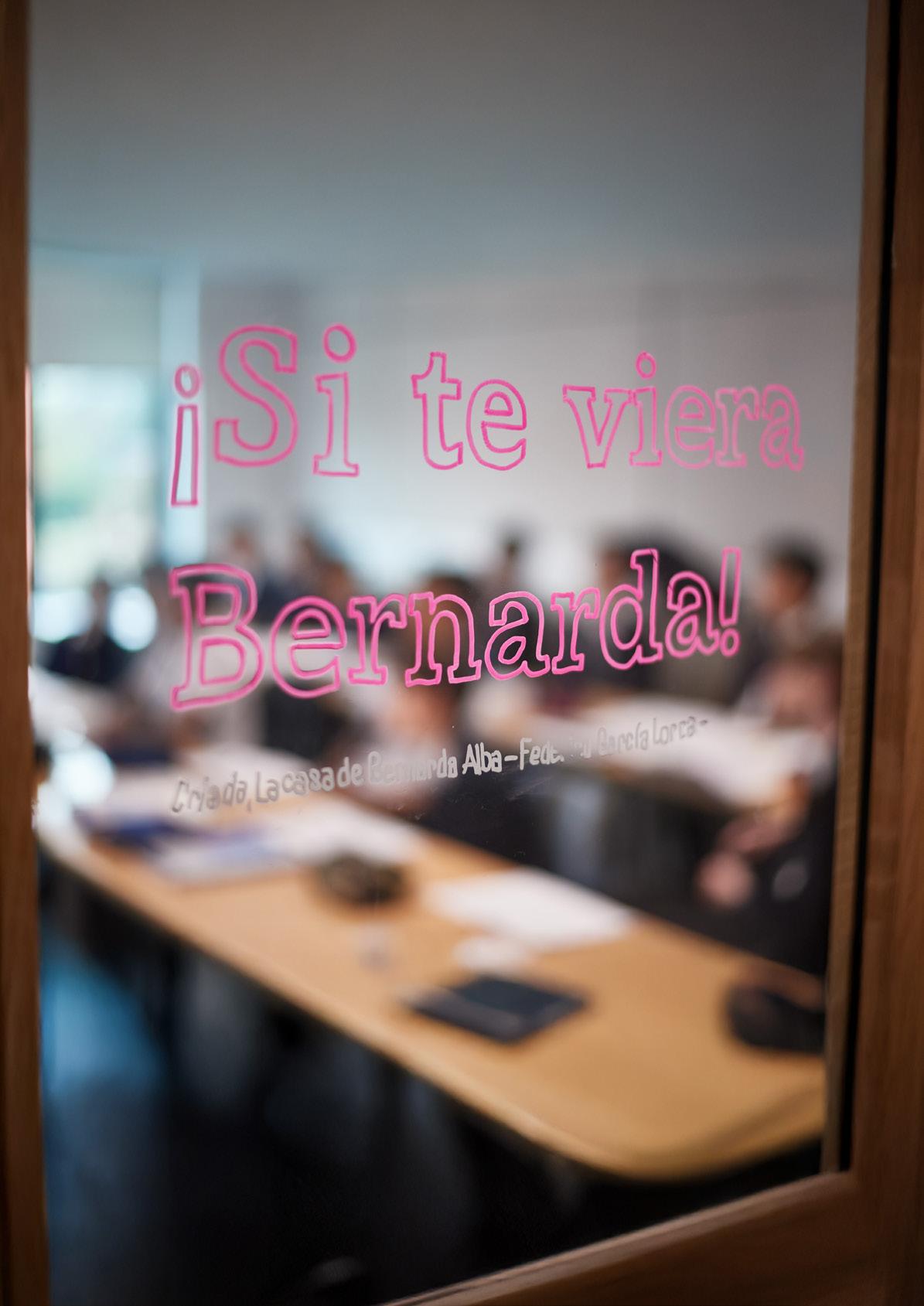
Subject enhancement
This section of the diploma will give you the chance to delve into one of your chosen A Level subjects or into an area of study you may consider taking up at university. You will have the opportunity to think critically, learn independently and participate in group discussions.
Focusing on a subject that you are most passionate about and the depth of understanding you develop will allow you to confidently discuss your chosen subject or field at university open days and interviews; detailing your learning experience beyond the classroom.
Some of the courses on offer include:
Alongside your independent learning project, it will allow you to demonstrate the depth of your ambition and commitment to the subject and field.
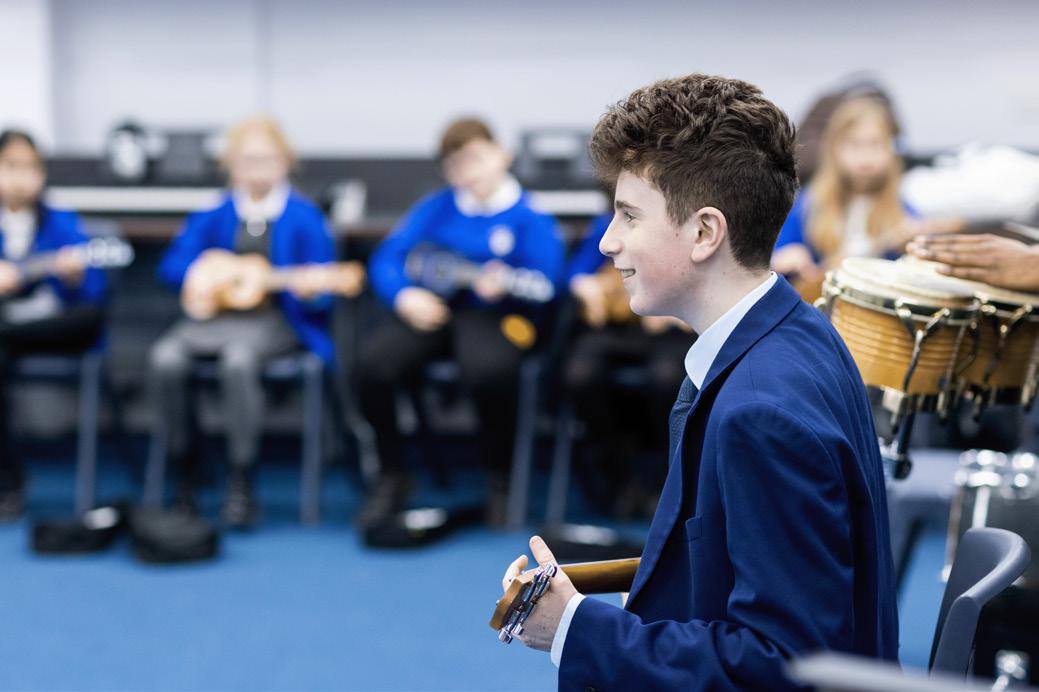
Community Service
Community is an important aspect at Habs and that is why it is one of our four values. As a member of our Sixth Form, you will play an active part in our community which we believe provides opportunities to learn more about different cultural perspectives and enhance empathy.
Our Community Service Programme involves taking responsibility, collaboration, applying creativity and exploring problem-solving skills in real-world situations. You will learn through your own experience and become prepared for the world that you are about to enter so you can make a difference.
You will be expected to get involved with at least 20 hours of community service each year. You will record your community service on Unifrog, keeping it updated with the number of hours you have undertaken, the projects you have helped with and your reflections on the experiences.
